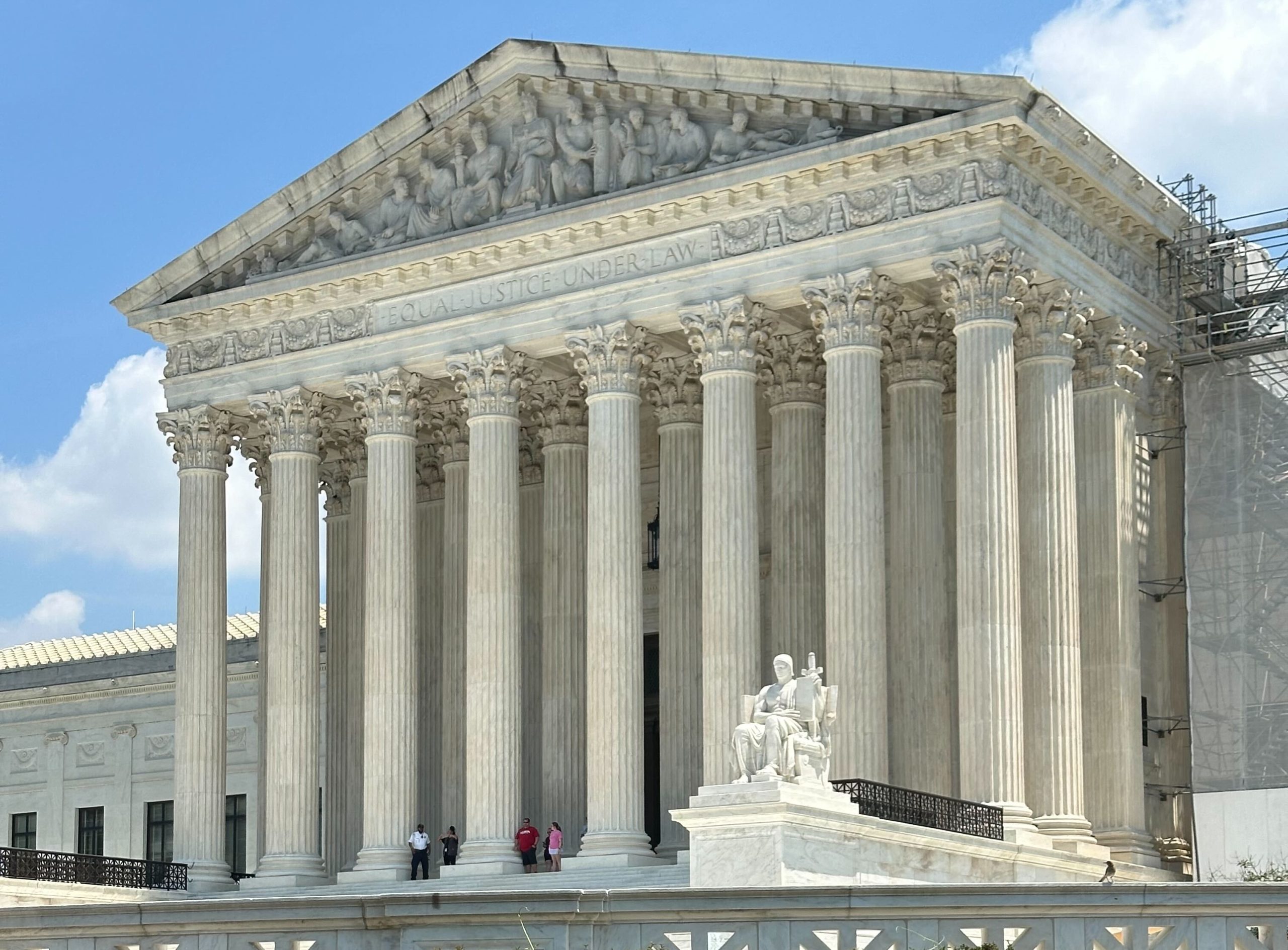Justices side with Biden over government’s influence on social media content moderation - SCOTUSblog

🌈 Abstract
The article discusses a Supreme Court ruling in the case of Murthy v. Missouri, where the court threw out a lawsuit seeking to limit the government's ability to communicate with social media companies about their content moderation policies. The court ruled that the plaintiffs did not have legal standing to bring the lawsuit.
🙋 Q&A
[01] The Supreme Court's Ruling
1. What was the key ruling made by the Supreme Court in this case?
- The Supreme Court ruled 6-3 that the plaintiffs did not have legal standing to bring the lawsuit challenging the government's communication with social media companies about content moderation policies.
- The court found that the plaintiffs failed to show a "substantial risk" that social media platforms would restrict their speech in the future due to government pressure.
2. What were the main arguments made by the majority and dissenting opinions?
- The majority opinion, written by Justice Amy Coney Barrett, argued that the plaintiffs did not establish a concrete link between the government's conduct and the content moderation decisions by social media platforms.
- The dissenting opinion by Justice Samuel Alito, joined by Justices Thomas and Gorsuch, argued that the case involved important free speech issues and that the plaintiffs, particularly Jill Hines, had shown sufficient evidence of government coercion of social media platforms.
3. What was the key issue at the heart of the case?
- The case centered on the concept of "jawboning" - the government's informal efforts to persuade social media companies to moderate content in certain ways, which the plaintiffs argued violated their free speech rights.
[02] Implications and Context
1. How does this ruling fit into the broader context of the relationship between the government and social media platforms?
- This case is one of several recent Supreme Court cases examining the government's influence over social media content moderation policies.
- The court is expected to issue rulings in the coming days on two other cases related to state laws regulating social media companies' content control.
2. What are the potential implications of this ruling for future cases involving government-social media interactions?
- The ruling sets a high bar for plaintiffs to establish legal standing to challenge the government's communication with social media platforms about content moderation.
- It suggests the court is hesitant to broadly restrict the government's ability to engage with social media companies on these issues.